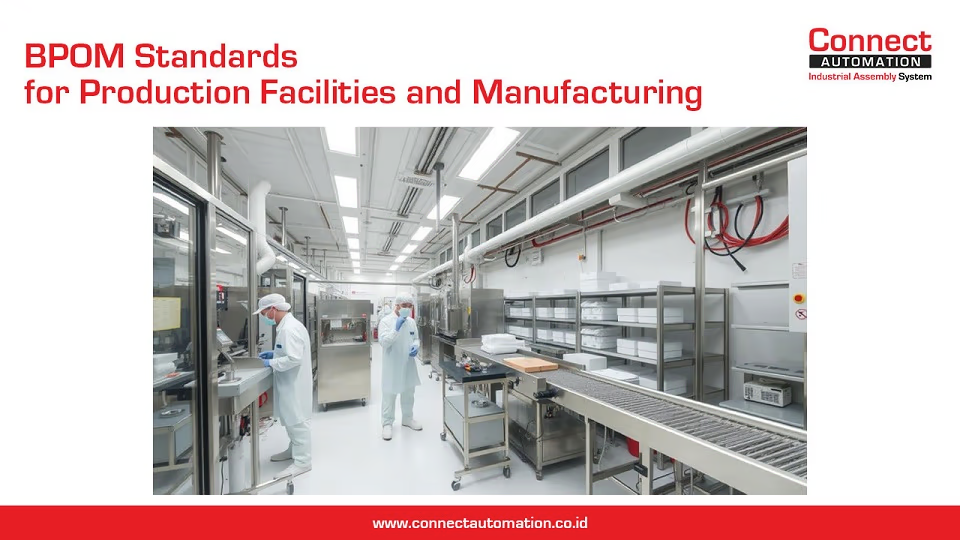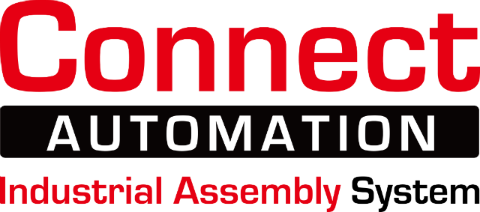REQUEST A FREE ESTIMATE!
BPOM Standards for Manufacturing Facilities and Processes

Did You Know? Every food and cosmetic production facility must comply with strict BPOM standards in order to legally enter the market. In the food, pharmaceutical, and cosmetic industries, compliance with BPOM (Indonesia’s National Agency of Drug and Food Control) regulations is a critical foundation to ensure product safety and quality. This article provides a comprehensive overview of the facility and manufacturing process standards set by BPOM that must be met by industry players.
1. Separation of Production and Processing Areas
BPOM requires a clear separation between production and processing areas to prevent cross-contamination. Production zones must have specific functions, such as receiving raw materials, processing, packaging, and storing finished products. Meanwhile, processing areas should be designed to ensure a streamlined workflow without overlapping stages and allow easy cleaning and maintenance of equipment.
2. Sanitation and Hygiene Requirements
Facility cleanliness is essential to maintaining product quality. BPOM mandates that floors, walls, and ceilings must be smooth, crack-free, and easy to clean. Piping installations should avoid dirt accumulation, and drainage systems must be efficient to prevent backflow. Adequate ventilation is also required to maintain temperature and humidity levels, while work areas must be well-lit, especially in zones requiring visual inspections.
3. Personnel and Training Standards
Personnel involved in production must be properly trained in operational procedures and hygiene standards. Protective clothing should be worn according to the sanitation classification of the work area. Eating, drinking, and smoking are strictly prohibited in production zones. Direct hand contact with open products must be avoided, and handwashing facilities must be readily available and used routinely.
4. Conveyor System Requirements
Conveyors must be designed to support efficient and safe production flow. The materials used should not react with products, must be easy to clean, and must not trap contaminants. Safety features should be in place to prevent accidents. Routine inspections and scheduled maintenance are necessary to ensure proper functioning, and any damage must be documented and promptly repaired.
5. Testing and Laboratory Areas
Testing laboratories must be separated from production areas to avoid cross-contamination. They should be spacious enough to prevent overlapping activities and include proper storage for samples and chemicals. Adequate ventilation must be in place to prevent the buildup of hazardous vapors.
6. Supporting Facilities
Supporting facilities within the production environment must be designed to enhance core activities without compromising product quality. Changing rooms and bathrooms must be separated from production areas, while toilets should not have direct access to storage or production spaces to prevent potential microbiological contamination from sanitation zones. Storage for tools and spare parts should be well-organized, and maintenance areas should be clearly separated from the main production process.
7. Documentation and Records
All production activities must be well-documented to ensure traceability and regulatory compliance. Each production batch should have complete records detailing all steps taken. These documents must be accessible and stored according to company policy. Internal audits should be conducted regularly to verify adherence to BPOM standards.
By following BPOM standards, industries not only meet legal requirements but also build consumer trust through assured product quality and safety. Regulatory compliance is the foundation for long-term success in a competitive market.
As a provider of industrial automation solutions, Connect Automation is committed to supporting manufacturers in meeting BPOM standards by offering hygienic conveyor systems, efficient production equipment, and compliant facility designs. With experience in the manufacturing sector and a focus on operational efficiency and regulatory adherence, Connect Automation is a trusted partner for safe and quality-driven operations.
Connect Automation specializes in providing automation solutions, including conveyor systems, to improve efficiency across various industries. The company delivers cutting-edge technology to help organizations automate tasks and optimize workflows. Connect Automation helps businesses reduce manual efforts, boost productivity, and achieve better outcomes. With a customer-focused approach, the company designs tailored solutions to ensure smooth and effective automation transitions for long-term success.
Kawasan Industri Jababeka Tahap 1, Jl. Jababeka II D Blok C14L Cikarang, Indonesia (17530)
(021) 893 5060 Google Maps
Rungkut Industri III, No. 37, Rungkut Menanggal, Kec. Gn. Anyar Surabaya, Indonesia (60293)
(031) 9985 8624 Google Maps
